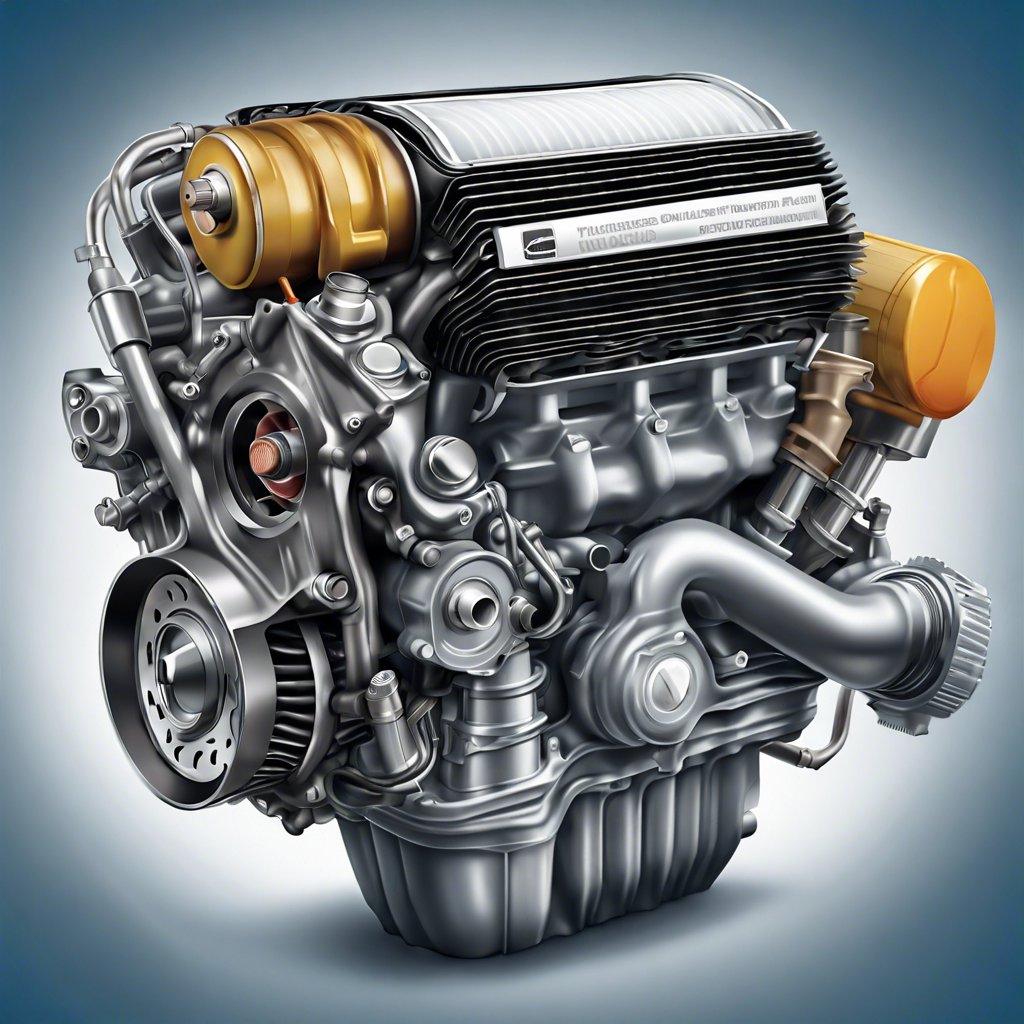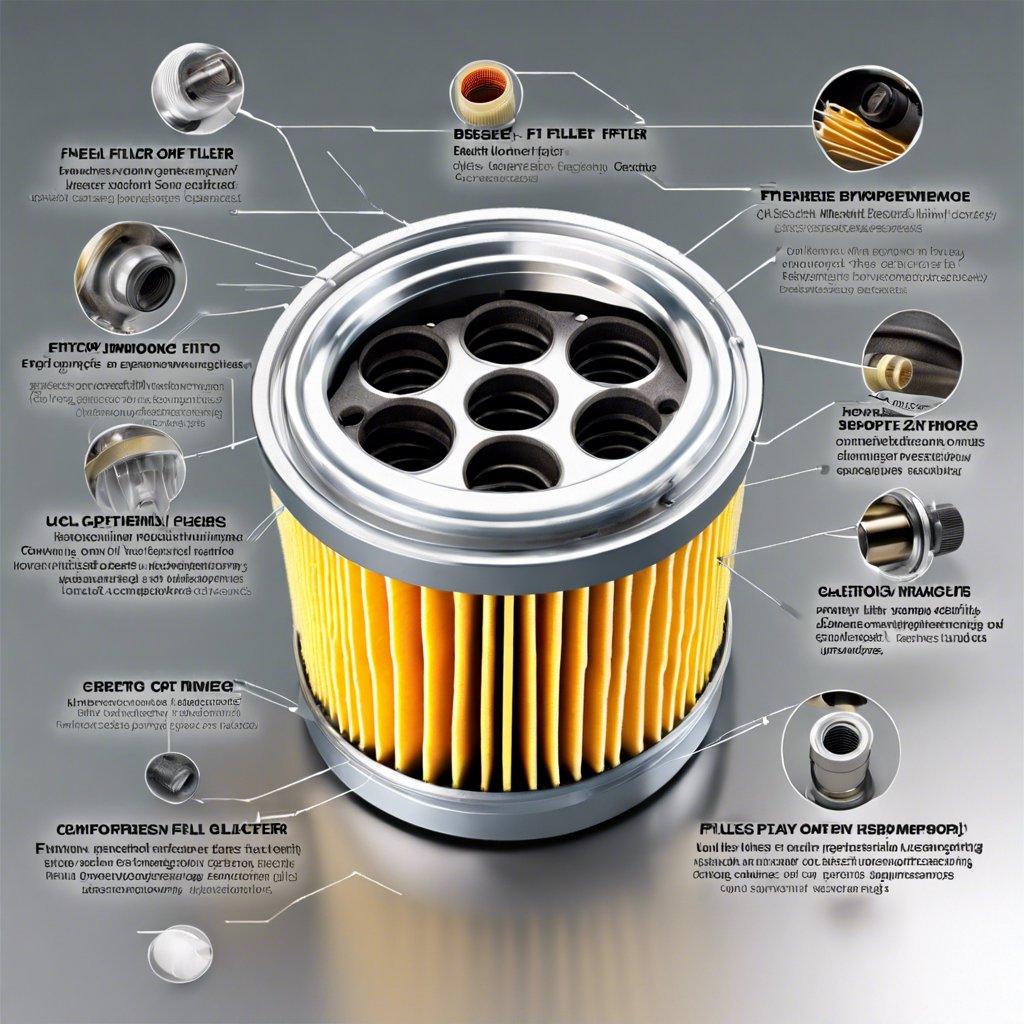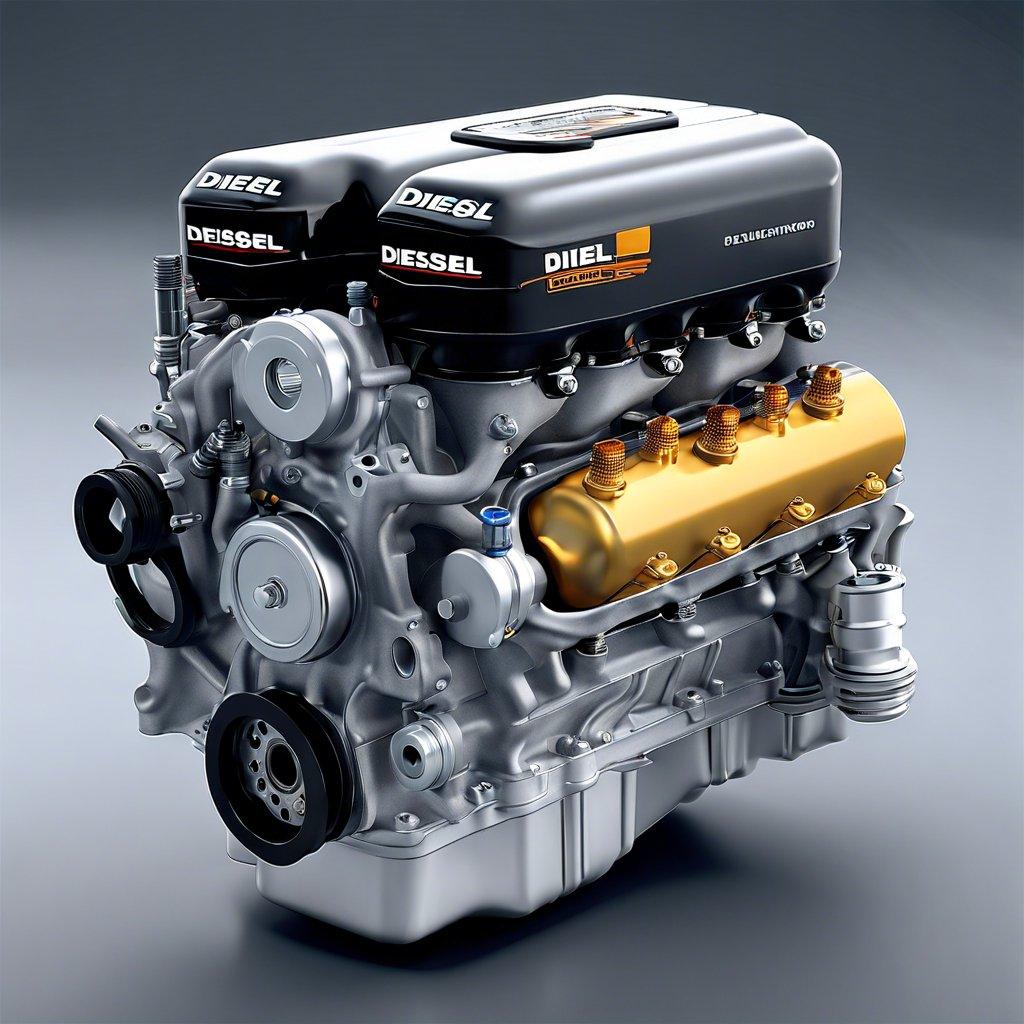The Frequency of Fuel Filter Replacement for Peak Efficiency
Optimal Fuel Filter Maintenance for Enhanced Equipment Performance

Understanding the Role of Fuel Filters
Fuel filters play a crucial role in maintaining the efficiency and longevity of modern engines. These filters are designed to remove contaminants, such as dirt, rust, and other impurities, from the fuel before it reaches the engine. By keeping the fuel clean, fuel filters help prevent costly repairs and ensure optimal equipment performance.
Determining the Optimal Fuel Filter Replacement Frequency
The frequency of fuel filter replacement can vary depending on several factors, including the type of equipment, operating conditions, and fuel quality. As a general guideline, it is recommended to replace the fuel filter every 6 to 12 months or after every 12,000 to 15,000 miles of operation, whichever comes first. However, it is essential to consult the manufacturer’s recommendations for specific equipment, as they may have different guidelines based on their design and intended use.
Signs of a Clogged Fuel Filter
Regularly inspecting and replacing the fuel filter is crucial to maintain peak equipment performance. Some common signs of a clogged fuel filter include:
- Reduced engine power or acceleration
- Difficulty starting the engine
- Increased fuel consumption
- Stalling or misfiring during operation
Fuel Filter Maintenance Best Practices
To ensure optimal fuel filter performance, it’s important to follow these best practices:
| Best Practice | Description |
|---|---|
| Regular Inspections | Visually inspect the fuel filter for signs of clogging or damage during routine maintenance. |
| Timely Replacements | Replace the fuel filter according to the manufacturer’s recommendations or at the first signs of clogging. |
| Use Recommended Filters | Always use the fuel filters recommended by the equipment manufacturer to ensure compatibility and performance. |
| Proper Disposal | Dispose of used fuel filters in accordance with local environmental regulations. |
Maintaining the optimal fuel filter replacement frequency is essential for enhancing the performance and longevity of your equipment. By following the manufacturer’s guidelines and being proactive in fuel filter maintenance, you can ensure that your equipment operates at peak efficiency, reducing downtime and costly repairs.
Maximizing Fuel Efficiency through Proactive Filter Replacement
Fuel filters play a crucial role in maintaining the efficiency and performance of vehicle engines. These filters are responsible for removing impurities, contaminants, and debris from the fuel before it reaches the engine, ensuring that the fuel system operates at its optimal level.
The Importance of Timely Fuel Filter Replacement
Neglecting to replace fuel filters can lead to a gradual decline in fuel efficiency, increased emissions, and even engine damage. As the filter becomes clogged over time, it restricts the flow of fuel, forcing the engine to work harder to draw the necessary fuel, resulting in decreased fuel economy and power output.
To maintain peak fuel efficiency, it is recommended to replace the fuel filter at the intervals specified by the vehicle manufacturer. This proactive approach ensures that the fuel system is operating at its best, optimizing fuel consumption and reducing the risk of costly engine repairs.
Factors Influencing Fuel Filter Replacement Frequency
Several factors can influence the frequency of fuel filter replacement, including:
- Driving Conditions: Vehicles operated in dusty, dirty, or high-moisture environments may require more frequent filter changes to prevent premature clogging.
- Fuel Quality: The use of low-quality or contaminated fuel can accelerate the accumulation of debris in the fuel filter, necessitating more frequent replacements.
- Vehicle Age and Mileage: Older vehicles or those with higher mileage may require more frequent filter replacements to ensure optimal fuel system performance.
Establishing a Proactive Maintenance Schedule
To ensure maximum fuel efficiency and engine performance, it is recommended to establish a proactive maintenance schedule for fuel filter replacement. This schedule should be based on the vehicle manufacturer’s recommendations, as well as the specific operating conditions and fuel quality encountered by the vehicle.
| Replacement Interval | Typical Mileage | Recommended Action |
|---|---|---|
| Every 12,000 miles | 12,000 miles | Replace fuel filter |
| Every 24,000 miles | 24,000 miles | Replace fuel filter |
| Every 36,000 miles | 36,000 miles | Replace fuel filter |
By adhering to a proactive fuel filter replacement schedule, engineering and technology employees can ensure that their vehicles maintain peak fuel efficiency, reduce emissions, and minimize the risk of engine damage, ultimately contributing to cost savings and environmental sustainability.
Achieving Peak Engine Output with Timely Fuel Filter Servicing
The Importance of Fuel Filter Replacement for Optimal Engine Performance
The fuel filter is a critical component in an engine’s fuel delivery system, responsible for removing impurities and contaminants from the fuel before it reaches the engine. Over time, as the fuel filter becomes clogged with debris, it can restrict fuel flow, leading to a decrease in engine performance, reduced fuel efficiency, and even potential engine damage.
Recognizing the Signs of a Clogged Fuel Filter
There are several telltale signs that indicate it’s time to replace the fuel filter, including:
- Decreased fuel efficiency – As the filter becomes clogged, the engine has to work harder to draw fuel, resulting in a noticeable drop in fuel economy.
- Hesitation or stalling during acceleration – A clogged filter can restrict fuel flow, causing the engine to hesitate or stall when under load.
- Rough idling or stalling – Restricted fuel flow can lead to an uneven air-fuel mixture, resulting in rough idling or stalling.
Establishing a Fuel Filter Replacement Schedule
To maintain peak engine performance and efficiency, it’s recommended to replace the fuel filter at the intervals specified by the vehicle manufacturer. This is typically every 30,000 to 50,000 miles, or as indicated in the owner’s manual. However, in harsher operating conditions, such as frequent towing, off-road use, or driving in dusty environments, the fuel filter may need to be replaced more often.
The Benefits of Timely Fuel Filter Replacement
| Benefit | Description |
|---|---|
| Improved Fuel Efficiency | A clean fuel filter allows the engine to operate at its optimal air-fuel ratio, resulting in improved fuel economy and reduced fuel costs. |
| Enhanced Engine Performance | With a properly functioning fuel filter, the engine can deliver increased power, acceleration, and responsiveness. |
| Prolonged Engine Life | Preventing fuel system contaminants from reaching the engine can help extend the engine’s lifespan and reduce the risk of costly repairs. |
Regularly replacing the fuel filter is a simple yet essential maintenance task that can have a significant impact on an engine’s performance, efficiency, and long-term reliability. By following the manufacturer’s recommended replacement schedule and staying vigilant for signs of a clogged filter, you can ensure your engine is operating at peak efficiency and enjoy the benefits of improved fuel economy, enhanced power, and extended engine life.
Preserving Powertrain Longevity through Diligent Fuel Filter Upkeep
Optimal Fuel Filter Replacement Intervals for Maximizing Powertrain Performance
Maintaining the efficiency and lifespan of your vehicle’s powertrain is crucial for optimal performance and cost-effective ownership. One key aspect of this is the timely replacement of the fuel filter, a component often overlooked but critical to the overall health of the engine and fuel system.
Understanding the Role of the Fuel Filter
The fuel filter plays a vital role in removing impurities and contaminants from the fuel before it reaches the engine. Over time, these filters can become clogged with debris, restricting fuel flow and leading to a range of issues, including reduced engine power, decreased fuel efficiency, and even potential damage to sensitive fuel system components.
Recommended Fuel Filter Replacement Intervals
The recommended frequency for fuel filter replacement can vary depending on the make and model of the vehicle, as well as the driving conditions and fuel quality in your area. As a general guideline, most manufacturers suggest replacing the fuel filter every 12,000 to 24,000 miles or every 12 to 24 months, whichever comes first. However, it’s important to consult your owner’s manual or speak with a qualified automotive technician to determine the optimal replacement schedule for your specific vehicle.
Benefits of Timely Fuel Filter Replacement
By adhering to the recommended fuel filter replacement intervals, you can enjoy the following benefits:
- Improved Fuel Efficiency: A clean fuel filter allows for unobstructed fuel flow, enhancing the engine’s combustion efficiency and reducing fuel consumption.
- Enhanced Engine Performance: A well-maintained fuel filter ensures optimal fuel delivery, resulting in improved power, acceleration, and overall engine responsiveness.
- Extended Powertrain Lifespan: Preventing contamination from reaching sensitive fuel system components can help prolong the life of the engine, fuel pump, and other critical powertrain parts.
- Reduced Maintenance Costs: Timely fuel filter replacement can help you avoid more expensive repairs down the line, such as fuel injector cleaning or fuel pump replacement.
Fuel Filter Replacement Procedure
Replacing the fuel filter is a straightforward maintenance task that can typically be performed by a qualified automotive technician. The process involves safely depressurizing the fuel system, removing the old filter, and installing a new, high-quality replacement filter. It’s important to follow all safety guidelines and use the appropriate tools and equipment to ensure the job is done correctly.
Diligent fuel filter maintenance is a crucial aspect of preserving the longevity and peak performance of your vehicle’s powertrain. By adhering to the recommended replacement intervals and using high-quality fuel filters, you can enjoy improved fuel efficiency, enhanced engine performance, and reduced maintenance costs over the long run. Remember to consult your owner’s manual or speak with a qualified automotive technician to determine the optimal fuel filter replacement schedule for your specific vehicle.




Post Comment